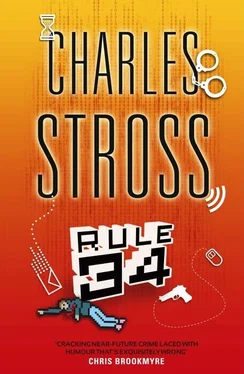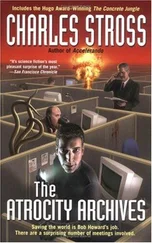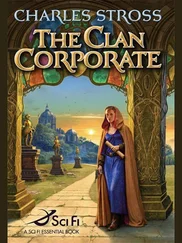The red spots on his cheeks come back, but he visibly bites his lip—and nods. It’s just a quiver of acknowledgment, but it’s the real thing. Suck it up, asshole. To his credit, he nods again. “It would seem that I owe someone an apology,” he admits.
Don’t be too fast with that: You could poke somebody’s eye out. You confine your response to a minutely calculated nod. “About Dr. MacDonald—”
“No,” says Dickie, and something about his tone alerts you, puts you on notice that he’s forgotten for a moment that he hates you.
“No?”
“Summat you said.” He frowns frumiously, an expression that comes easily to the front of his wrinkled noggin. “Stumbled over a lead by pure chance . So you say. D’ye really think that’s plausible?”
“What are you implying?” Your hackles are still raised.
“I’m not implying… anything … about you . What I’m saying is, it’s a verra convenient coincidence. And if there’s one thing ye ken I dinna trust, it’s coincidences. And there’s too goddamn many of them in this ay mess.”
“Coin—” You stop. “Dr. MacDonald. His whole social-network-analysis thing?”
Dickie fixes you with one cold blue eye and nods slowly, beneath the cone of silence.
* * *
You begin to come down from the adrenaline spike of career-terminating rage when you arrive back at the door to the ICIU. Inside, all is as it should be: The ever-rotating pool of uniformed porn monkeys are whining for release from the vomitorium, Moxie is forted up in the second office behind a stack of giant monitors and discarded munchie boxes, and Kemal is propping up the wall behind him, looking bored behind his shades.
“Hey, skipper.” Moxie leers at you over a browser full of—you look away quickly. “What can I do you for?”
“Dr. Adam MacDonald, Ed Uni, CS department. What have we got on him?”
“How deep do you want to go?” Your ferret is bright-eyed and bushy-tailed: Moxie likes nothing better than a good chase.
“Public sources first? Nothing I have to sign for at this time.”
“Well.” Moxie twitches his fingers at a couple of tabs. “It’s funny you ask that, skipper. He’s got an article on wikipeople, you know? And the social networks, what’s not friends-locked. A couple of singlesign-ons will vouch for him, and he posts in chat rooms all over the place.” He pulls a face. “Nothing saucy—well, nothing much. He’s divorced, one ex-husband—he’s heterosexually challenged and hangs out in the usual places.”
Kemal is head down over a pad, evidently brainstorming something—you can see lots of mind-map bubbles floating in an ochre soup of murky possibilities. “Okay. Let me authorize a trawl of CopSpace links under BABYLON’s authority.” You don’t have the authority to pull up random citizen’s CopSpace records on your own, but MacDonald’s on BABYLON’s radar as a POI, and you’re on team as an inspector, so your signing authority will cover it. You lean over Moxie’s terminal and stick your thumbprint on the reader, as required. It’s very fast and streamlined these days, the hierarchical delegation of surveillance authority under RIPA statutes: police-intelligence access via social network. “Let’s see who the good doctor has been talking to lately…”
Kemal catches your eye. While Moxie is busy, you follow him outside into the bright sunlight. The drive is occupied; someone’s parked a bunch of the force’s riot barrier trailers there, lined up as if there’s an up-coming derby. “What is it?” you ask.
“Your boss must really hate you.” To your surprise, he pulls out a packet of cigarettes and glances around. “Do you mind?”
“Um…” You shake your head. “Yes, he does. Five years ago I was in line for the job he’s in now, and he knows it. I’m the skeleton in his closet.” Lothian and Borders is officially a non-smoking force, but Kemal’s just visiting, and you’re outside and more than ten metres from a doorway. “Is that legal?”
His cheek twitches in something like a smile. “I have given up giving up.”
You step sideways to stand up-wind of him: “Any thoughts?”
He gets the thing lit and inhales deeply, frowning. After he lets the smoke out, the set of his shoulders relaxes somewhat. “I have been reading this morning’s reports. More fatalities. One of them is a computer scientist in Boston. The usual methodology applies: a misdirected package. This man, though, was a full professor. Not a spammer. He listed project ATHENA as one of his research areas.”
“You think that’s why Ops sent us to see MacDonald?”
“I think so.” He nods, then sucks at the cancer stick again. “Also”—he shrugs tiredly—“the information-crimes angle.”
You get that hint instantly. ICIU is the red-headed stepchild of CID and IT Support, the spotty teenager with the suspect habits whose bedroom nobody willingly cleans for fear of what they’ll find under the bed. It’s the same everywhere. Most police work boils down to minimizing the impact on society of stupidity; of the remainder, the overwhelming majority is about malice and deliberate evil, but it’s still almost all stupid. Smart cops hate smart crimes, because they take ages to nail down and in the meantime your clean-up metrics tank. And the crime here—assuming there’s anyone to charge with it—is so high concept that it’s making your nose bleed. “What kind of scenario do you think we’re looking at?”
Smoke trickles from his nostrils. “We have bodies, linked in life by a social network, linked in dying by weird coincidences. We have software for scanning social networks and making deductions about the people in them. We have researchers discussing active countermeasures . The question that remains is, did a human being order the software that is conscious to start taking such measures? Or is it an accident?”
“Different charges, either way.” He stubs the cigarette out on the sole of one shoe and pockets the butt, staring at you. For your part, you stare at the roofline of the intelligence building, feeling numb. “If someone gave the order, well, there’s your mens rea and a tidy wrap-up. If nobody did so, then we’re into murkier waters: negligent homicide, maybe.”
“And the software?” Kemal raises an eyebrow. “If it’s conscious—”
“Fuck the software!” You struggle to keep your voice under control. “I know what you’re going to say, and it doesn’t wash. The law’s about fifty years behind the times here, but nobody’s going to shed any tears for a killer robot. If it went off on its lonesome, there is going to be such a shitstorm of new legislation coming down the pipe—” You stop. “Oh,” you say. “Coincidences.” And it’s a good thing you’re not a smoker like Kemal because the blinding flash of insight when Dickie’s time bomb detonates is so dazzling that you’d have dropped your fag, and it’s a fifty-euro fine for littering under the cameras hereabouts.
* * *
Lay out the clues like a chain of dominoes:
Mikey Blair, killed by a drug interaction between his spiked enema fluid and his protease-inhibitor prescription. That’s a coincidence, isn’t it?
“John Christie,” whoever he really is, walking in on the crime scene. Let’s call that another coincidence and see where it runs.
Lots more killings, all coincidentally contrived, like the Mohammed case: electrocuted by a homicidal vacuum-cleaner robot, or the German guy, burned to a crisp by his sun bed. Coincidence as a modus operandi : a sequence of little nudges that build to a fatal pay-off. (If one fatal accident fails to materialize, what are the odds that a bunch of other lethal contingencies lie in the target’s future?)
Читать дальше












